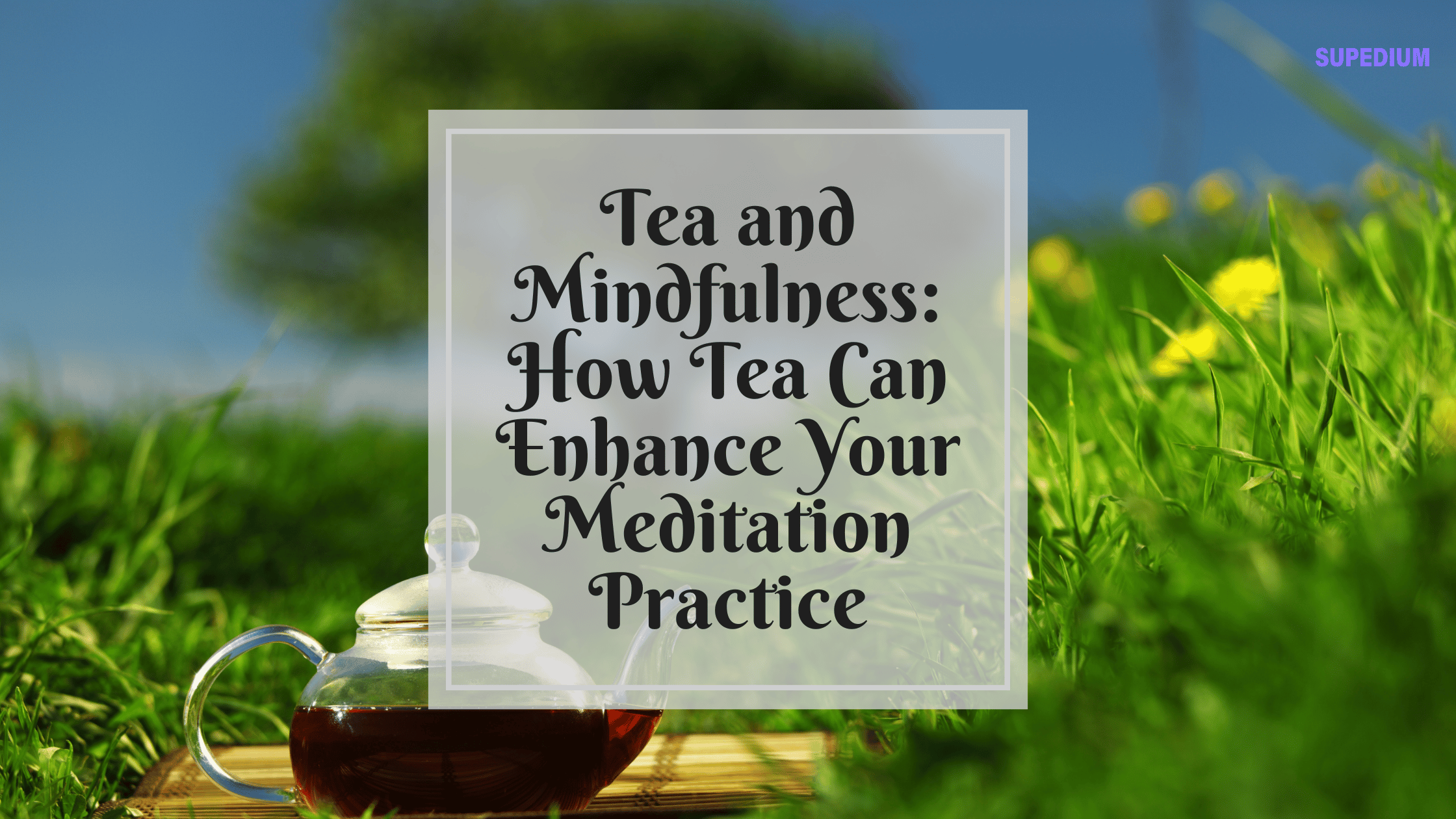Table of Contents
- 1 The Connection Between Tea and Mindfulness
- 2 Types of Tea and Their Impact on Mindfulness
- 3 Techniques for Integrating Tea into Meditation Practice
- 4 Benefits of Combining Tea and Meditation
- 5 Potential Challenges and Considerations
- 6 Practical Tips for Incorporating Tea into Your Meditation Practice
- 7 Conclusion
![]()
In the pursuit of mental clarity and relaxation, mindfulness and meditation have become invaluable practices for many. These practices involve cultivating an awareness of the present moment, often through structured techniques that promote mental and emotional well-being. Recently, there has been a growing interest in exploring how everyday activities, such as drinking tea, can complement and enhance these meditative practices. This article delves into the intersection of tea and mindfulness, illustrating how tea can serve as a powerful tool to enrich your meditation practice.
The Connection Between Tea and Mindfulness
Tea, often celebrated for its rich history and cultural significance, can offer more than just a pleasant beverage. The experience of drinking tea engages multiple senses—aroma, taste, and temperature—each contributing to a heightened state of mindfulness. The scent of tea leaves, whether floral, earthy, or herbal, can anchor you in the present moment, while the act of savoring each sip encourages a mindful focus on the experience.
The ritual of preparing and drinking tea also plays a significant role. In many cultures, the process is not merely a means of consuming a beverage but a deliberate, contemplative practice. This ritual can help establish a routine that supports mindfulness, making it an ideal complement to meditation practices. By incorporating tea into your daily routine, you create a structured opportunity to engage in mindfulness, thereby enhancing your overall meditation practice.
Types of Tea and Their Impact on Mindfulness
Different types of tea offer varying benefits that can align with different aspects of mindfulness and meditation.
Green Tea: Known for its delicate flavor and numerous health benefits, green tea contains L-theanine, an amino acid that promotes relaxation and focus. L-theanine can help balance the stimulating effects of caffeine, making green tea a suitable choice for enhancing mental clarity and concentration during meditation.
Herbal Teas: Herbal teas, such as chamomile and peppermint, are often consumed for their calming and refreshing properties. Chamomile, with its soothing effects, can aid in relaxation and stress reduction, while peppermint can invigorate the senses. Both types of herbal tea can support mindfulness by creating a calming atmosphere conducive to meditation.
Black Tea: Black tea has a higher caffeine content compared to green and herbal teas, which can enhance alertness and focus. However, it’s essential to manage caffeine intake carefully to avoid overstimulation, especially if you plan to meditate. Balancing black tea consumption with relaxation techniques can help integrate its stimulating effects into a mindful practice.
Techniques for Integrating Tea into Meditation Practice
Integrating tea into your meditation practice can be approached through various techniques:
Pre-Meditation Tea Ritual: Begin your meditation practice with a mindful tea preparation ritual. Take time to appreciate the aroma of the tea leaves, the sound of the water boiling, and the process of steeping the tea. This ritual can help set a focused and intentional tone for your meditation session.
Mindful Tea Drinking: During your meditation practice, consider drinking tea mindfully. Focus on the sensory experience of each sip—the warmth of the cup, the taste of the tea, and the soothing effect it has on your body. Use this mindful drinking as an anchor to return to the present moment if your mind begins to wander.
Post-Meditation Tea Practice: After meditation, reflect on your experience while enjoying a cup of tea. This practice can help consolidate the benefits of your meditation session and create a sense of closure. It can also extend the mindfulness cultivated during meditation into a post-session routine.
Benefits of Combining Tea and Meditation
Combining tea with meditation can offer several benefits:
Enhanced Focus and Concentration: Tea, particularly green tea, contains compounds like L-theanine that can improve concentration and mental clarity. When combined with meditation, tea can help maintain focus and deepen the meditative experience.
Stress Reduction and Relaxation: The calming properties of herbal teas and the relaxing effects of mindful tea drinking contribute to stress reduction. Both tea and meditation support relaxation, helping to manage stress and promote overall well-being.
Creating a Mindful Routine: Incorporating tea into your daily routine can help establish a consistent mindfulness practice. The act of preparing and drinking tea mindfully can reinforce the habits necessary for effective meditation, creating a seamless integration of mindfulness into everyday life.
Potential Challenges and Considerations
While tea can be a valuable addition to your meditation practice, there are some considerations to keep in mind:
Caffeine Sensitivity: If you are sensitive to caffeine, choose teas with lower caffeine content or opt for herbal teas that are caffeine-free. Excessive caffeine can interfere with relaxation and meditation, so it’s crucial to balance your tea consumption based on your individual needs.
Quality of Tea: The quality of tea can significantly impact the sensory experience and benefits. Opt for high-quality, pure teas without additives or artificial flavors to ensure that your tea practice supports mindfulness effectively.
Practical Tips for Incorporating Tea into Your Meditation Practice
To make the most of tea in your meditation practice, consider these practical tips:
- Choose the Right Type of Tea: Select tea varieties that align with your mindfulness goals, whether you seek relaxation, focus, or a refreshing experience.
- Create a Dedicated Space: Set up a dedicated space for your tea and meditation practice. A tranquil environment enhances the overall experience and supports mindfulness.
- Develop a Routine: Establish a routine that incorporates tea preparation, drinking, and meditation. Consistency in this practice can reinforce mindfulness and create a structured approach to well-being.
Conclusion
Tea, with its rich cultural heritage and sensory appeal, offers a unique way to enhance your meditation practice. By integrating tea into your mindfulness routine, you can create a holistic approach to relaxation and mental clarity. Whether through the ritual of tea preparation, the mindful act of drinking, or the reflective moments post-meditation, tea can serve as a valuable tool in deepening your mindfulness and enriching your overall meditation experience.
Share This





Be the first to comment